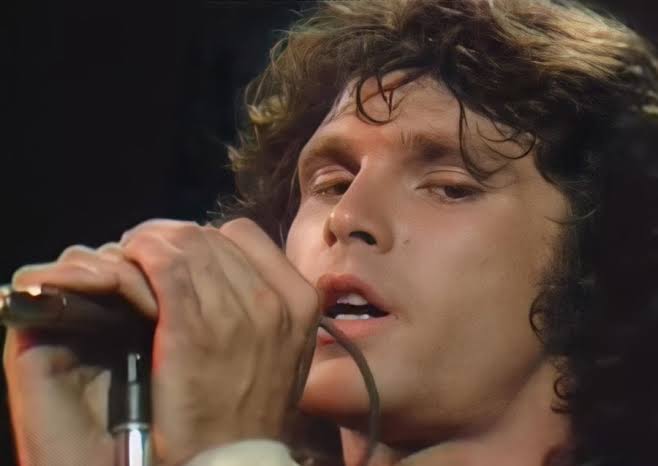
In 1967, the legendary rock band The Doors were poised to appear on one of television’s most iconic platforms: *The Ed Sullivan Show*. This show, which had launched the careers of countless musical acts, was a crucial stepping stone for any artist seeking mainstream recognition. However, the band’s appearance on the show would ultimately lead to one of the most infamous moments in rock history, as The Doors were banned from future performances following a confrontation with the show’s producers.
The conflict began when The Doors were invited to perform their hit song *Light My Fire* on *The Ed Sullivan Show*. The producers of the show, known for maintaining a strict standard of what was deemed acceptable for their family-friendly audience, requested that the band modify some of the lyrics to make them more palatable for viewers. Specifically, they wanted Jim Morrison, the band’s charismatic and controversial lead singer, to change the line “Girl, we couldn’t get much higher” to something less provocative.
Morrison, known for his rebellious and free-spirited nature, agreed to perform the song but was clearly displeased with the request. However, in a moment of defiance, Morrison chose to sing the original, unaltered lyrics on live television
Despite the tension surrounding the show, The Doors’ appearance became an instant cultural flashpoint. While Morrison’s refusal to comply with the producers’ demands was seen as a form of artistic integrity, it also triggered a backlash from those who saw it as a direct challenge to the authority of mainstream television. Within hours of the show airing, word spread that The Doors had been banned from performing on *The Ed Sullivan Show* again.
This ban was a reflection of the larger cultural tensions of the time. The 1960s were a period of intense social and political upheaval, marked by the rise of counterculture movements, a growing distrust of authority, and the increasing influence of rock music as a form of protest. The Doors, with their dark, poetic lyrics and defiance of societal norms, embodied this spirit of rebellion. Their clash with *The Ed Sullivan Show* was just one of many moments that highlighted the growing rift between the establishment and the younger, more radical generation.
Interestingly, Morrison’s defiance did not hurt the band’s popularity. If anything, it cemented The Doors as one of the most iconic bands of the era. Their music resonated with a generation that valued freedom of expression and rebellion against societal norms. While the band never appeared on *The Ed Sullivan Show* again, their music continued to thrive, with *Light My Fire* remaining a defining track of the 1960s.
In the years that followed, Morrison would continue to challenge conventional boundaries, both on and off stage. His reputation as an enigmatic figure grew, and The Doors’ place in rock history was solidified. The Ed Sullivan Show incident would be remembered as a pivotal moment in the band’s career, illustrating the tension between art and authority that defined much of the cultural landscape of the 1960s.
In hindsight, The Doors’ ban from *The Ed Sullivan Show* is seen not as a setback, but as a defining moment in the band’s history. It epitomized the conflict between artistic expression and the constraints of mainstream culture. While the show’s producers likely viewed it as a failure to maintain control, Morrison’s act of defiance resonated with countless fans, leaving a lasting legacy that went far beyond the airwaves of television.
Leave a Reply